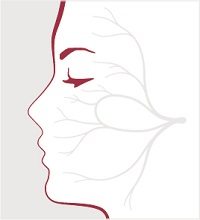The UCHealth Facial Nerve Center is staffed with a highly skilled, experienced, multidisciplinary team dedicated to the diagnosis and treatment of facial nerve disorders. Our team of specialized otolaryngologists (head and neck surgeons), ophthamologists, neurotologists, and physical therapists work closely together, offering a complete range of therapies and advanced surgical techniques.
Facial nerve disorders can cause weakness, paralysis, involuntary movement or drooping of the facial muscles. These symptoms usually present on just one side of the face and can appear suddenly or happen gradually over time. These symptoms can have an impact on a person’s quality of life, affecting the appearance of the eyes, smile and speech, but can also cause physical discomfort.
Conditions we treat: facial paralysis

There are many possible causes for facial paralysis, but some of the more common ones are:
- Bell’s Palsy – a nerve disorder that causes (usually) temporary paralysis.
- Tumor or cancer requiring surgical removal of a piece of the facial nerve.
- Stroke.
- An error in fetal development or trauma during birth.
- Accidental trauma to the nerve during a car accident or fall.
- Autoimmune diseases, such as Wegener’s disease.
- Neurologic diseases, including multiple sclerosis.
- Other infections, including Lyme disease or shingles of the face.
- Chronic ear problems, such as cholesteatoma.
Problems caused by facial paralysis
- A change in physical appearance.
- A change in the ability to express emotion.
- Difficulty closing the eye with drying and possible vision loss.
- Difficulty keeping liquids in the mouth.
- Nasal blockage.